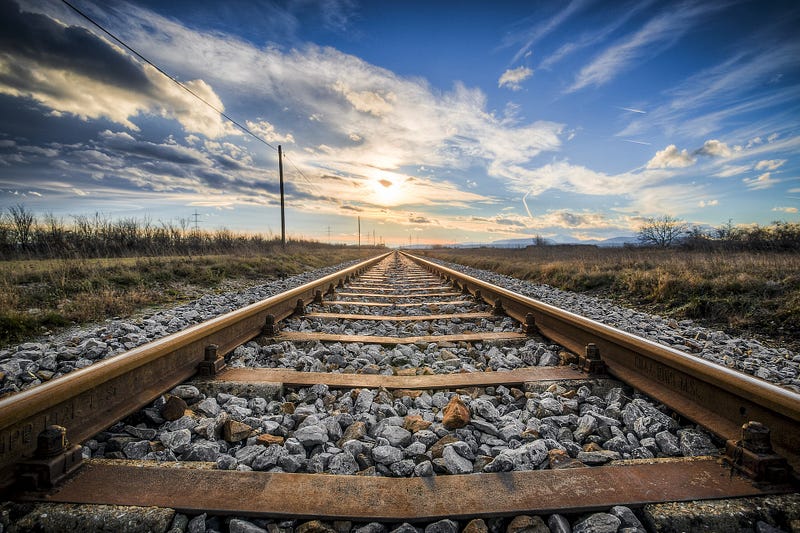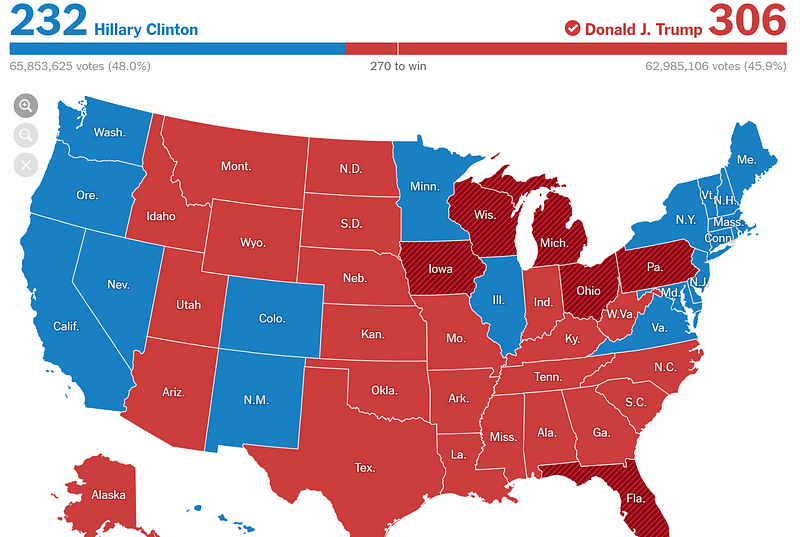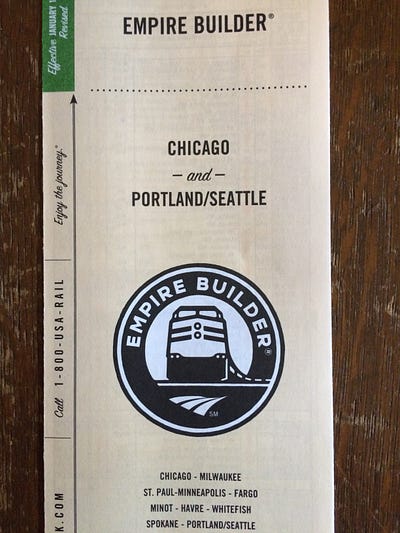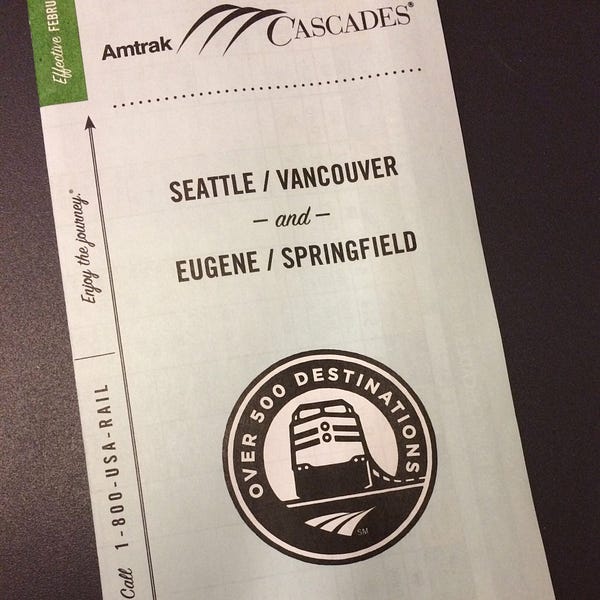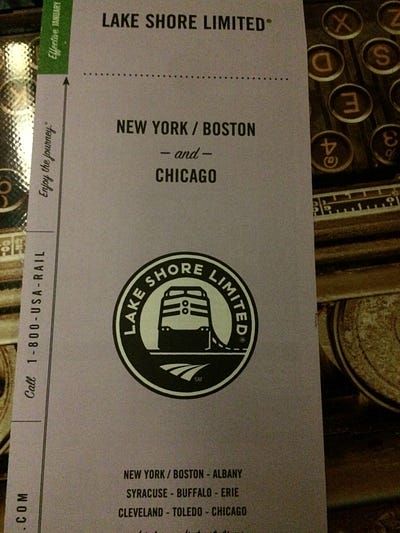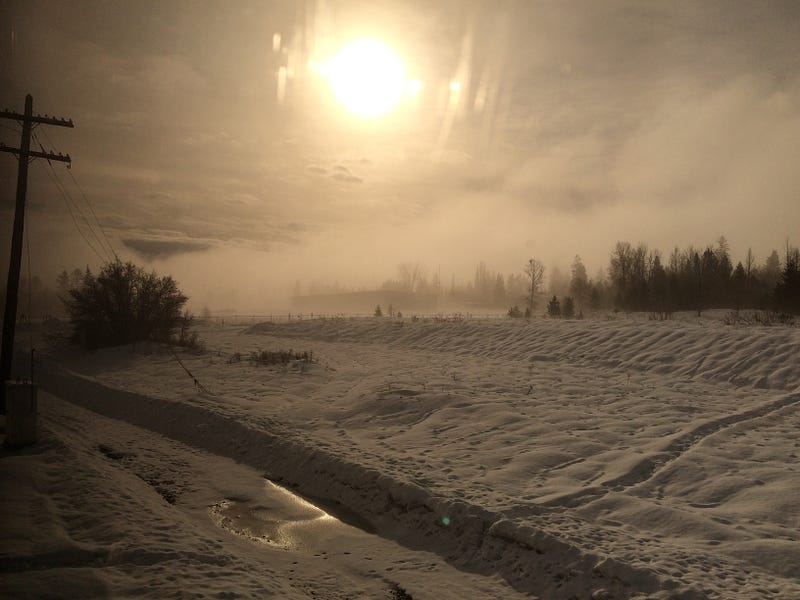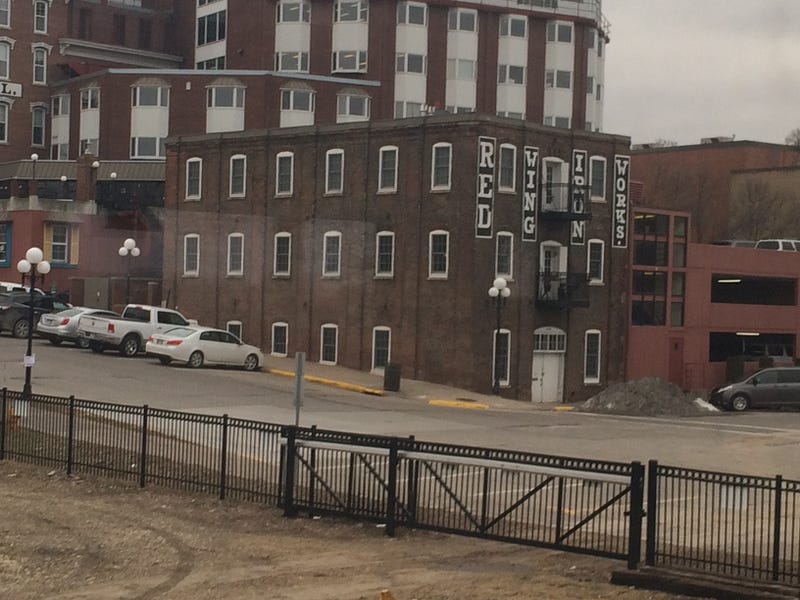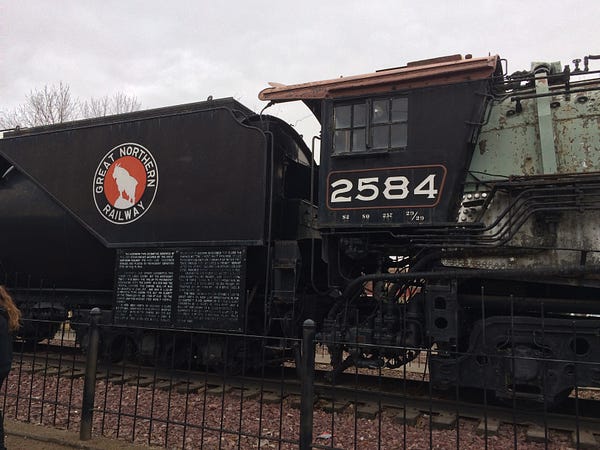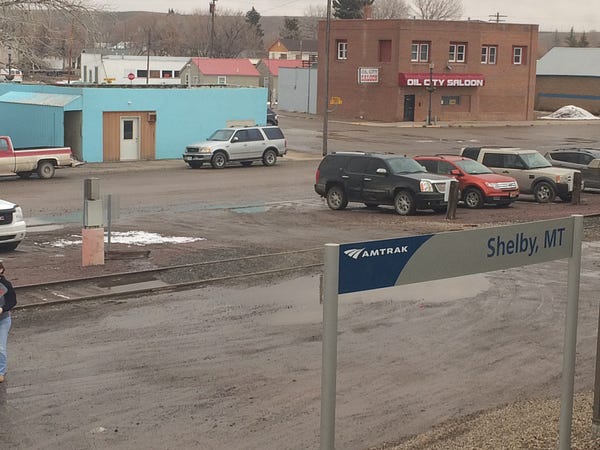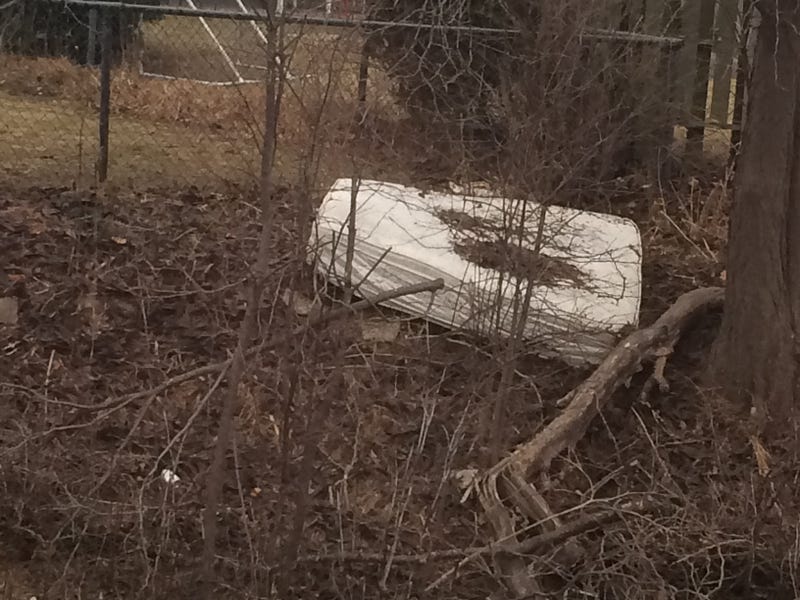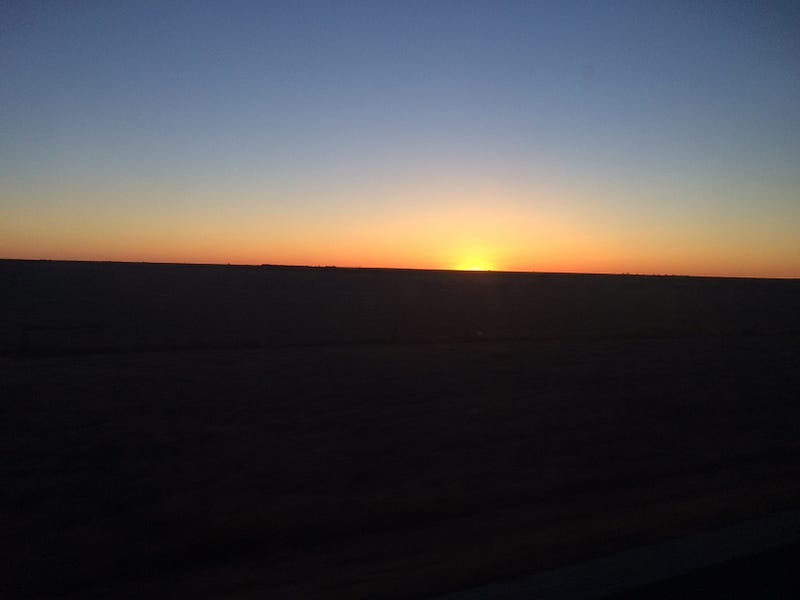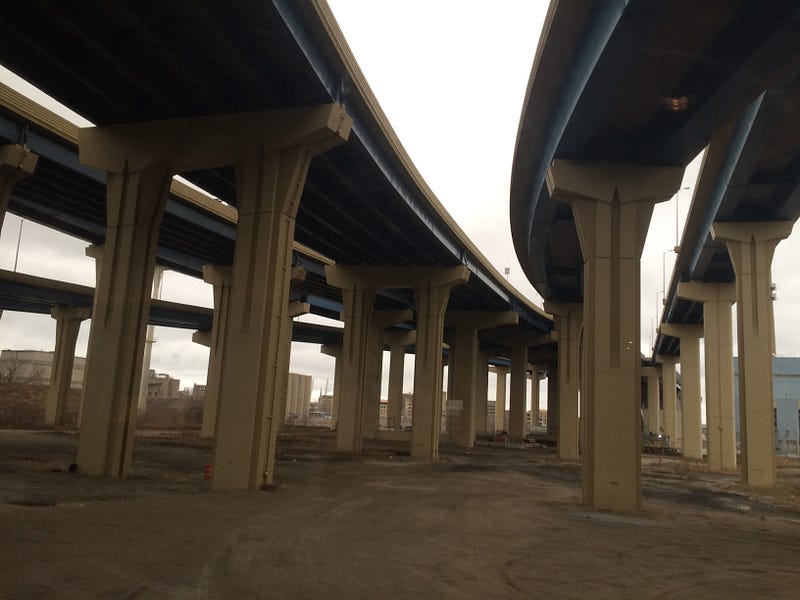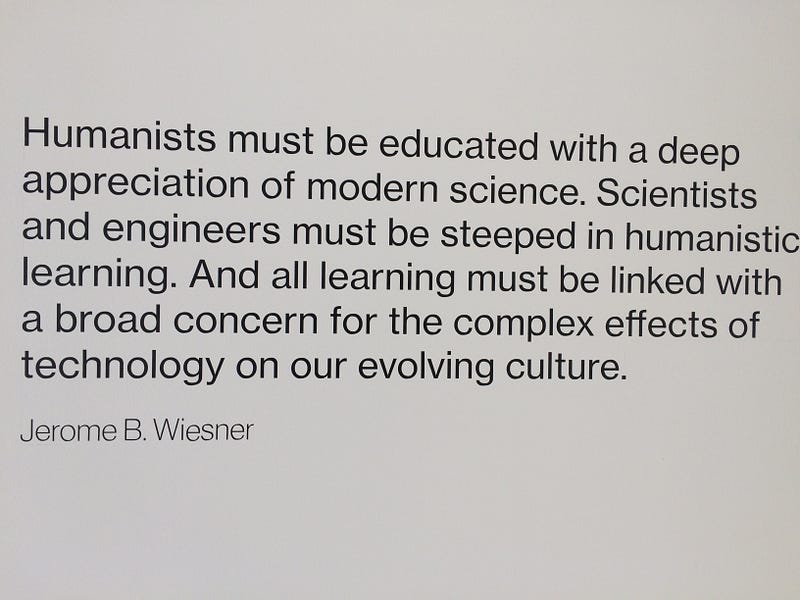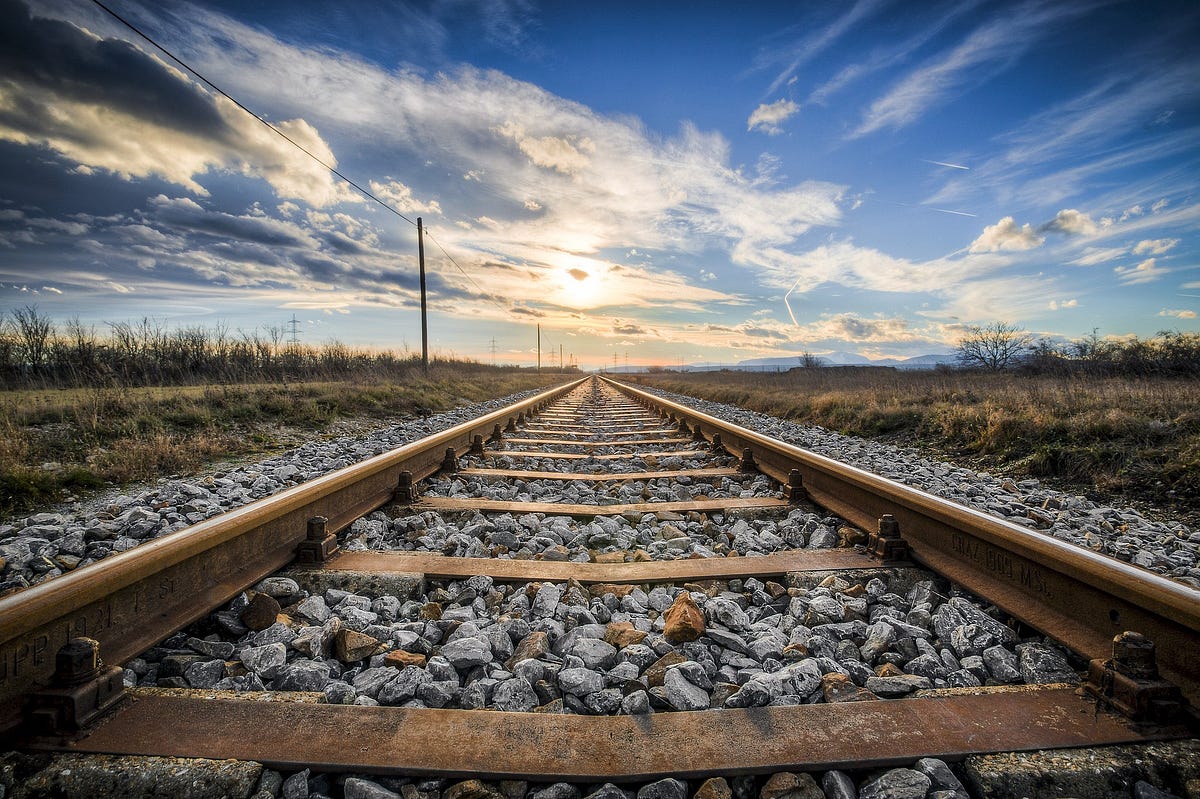
“All moments, past, present and future, always have existed, always will exist.” ― Kurt Vonnegut (Slaughterhouse-Five)
Darkness had swallowed the light. It gave back brief flashes of violence. Sheets lit up a formless landscape, but I was mostly gazing out the window at nothingness. I couldn’t tell if the rubber was actually meeting the road, the incessant hissing sounds of water pouring out from the tires was the only sensation of feeling grounded. Was the storm chasing us or were we chasing the storm? The question nagged at me all the way into Kansas City, MO. This scene has stuck with me. I’d never seen a storm like it. At that moment rolling through the heartland of America, I was imagining the political storm that rolled over the country on November 8, 2016.
I was riding the Greyhound that night of February 28, 2017, for a few reasons. The research and technology our business was working on connected to Bots and misinformation earned me an invitation to attend the first MisInfoCon: A Summit on Misinformation, Feb 24–26, at MIT Media.
The conference was a meaningful learning experience, but there was more to learn about America than what I’d hear from the other attendees. Plus, I couldn’t stop thinking about this map from November 9th, 2016, the strips of blue flanking a block of red. It left me thinking about the divisions, how people are informed and the complexities of the information ecosystem.
Flying round-trip from Vancouver, BC to Boston, MA would have been faster, arguably more comfortable, but would be a lot less telling. I wanted to observe and contemplate, to listen and learn. What would America show me? What would Americans tell me? What would I learn about myself?
More than a year later the experience of crisscrossing America still resonates through me. Every mile and each stop other than Seattle and Portland was new to me. Despite being immersed in the subject of bots and misinformation, and with the news volume reaching louder decibels (I’m writing my first draft of this on the day after Robert Mueller’s indictment of 13 Russians for “undermining public confidence in democracy”), this isn’t meant to be a personal retrospective about information warfare either. We’ve written about the topic in our eBook — “ Ecosystem of Fake: Bots, Information, and Distorted Realities. “
Almost four days by train, three nights in Boston and five days on a Greyhound gave me countless personal moments of reflecting on life in general, and to think about the magnitude of the information crisis in particular. With pages of notes, almost seven-hundred pictures, and a folder of ephemera collected along the way, it’s the people I crossed paths with and their stories that matter most.
When I left Vancouver on February 21, 2017, there were fresh memories of the President’s inauguration, crowd-size debates, marches, demonstrations and much of media still asking — “how did we get this so wrong?” Not getting out of the metro newsrooms and not connecting with Main Street people was a big reason. Data doesn’t speak as real people do. This post-election commentary like this points to the bi-coastal blind spots –
The Real Story Of 2016 How did everyone get it so wrong? 4 Possible Reasons The Polls Got It So Wrong This Year How Data Failed Us in Calling an Election
This trip wasn’t meant to be a journalistic endeavor. It was about conversations, not interviews. It was about trying to catch my own biases shaping what I was seeing and hearing. Reserving judgement is a tall order. It also was about being uncomfortable. I didn’t pitch this story, I had no deadlines, and no preconceived notions of what, only four rules to travel by –
- Don’t lead a conversation with, “I’m from Canada”
- Don’t ask for an opinion about the President
- Observe how and where people are getting their information
- Be courteous and curious
Whatever the story, whenever it got written, and where ever it’s published, it’s writing is in the spirit of Carl Bernstein’s notion about “the best obtainable version of the truth.” I owe being true to everyone (first names only) who shared some of their stories.
I’m not a big conversation initiator, waiting, watching and letting people come to me is my preference. Compared to flying economy, the train seats are both more spacious and comfortable. This leg of the trip was mostly a contemplative one. Between not having a seatmate all the way to Chicago, along with my social strategy of not seeking “subjects to interview” conversations were sparse.
Seeing America’s landmarks and landscape rolling past felt like many novel pages I’d turned or movies scenes watched were turning into unforgettable realities. For instance, the observation car offered up a harsh and unforgiving vision of Montana’s winter. Scenes from Jeremiah Johnson played out and pages from Lonesome Dove felt real.
The first “personality” I encountered was in Empire Builder’s observation car. Asking if I could join him at the table, it’s fair to say that between the mountains of Montana and Boston, Frank was, well, true to his name. Despite calling Oregon home for many years, my ear didn’t let me down guessing Boston was home. He was frank about growing up toughened by a hard-drinking bookmaking father. Frank called him a “low-level mobster.” He was that other side of the tracks kid. Talking about his own kids (all now adults), he just rolled his eyes, sharing most parents lament, “they don’t listen.” Family connects him to the East Coast, but his connection with the West came clear when he offered one of the more quotable moments saying, “the two best things about Oregon is the weed and the right to die.” Guessing who Frank voted for wasn’t difficult.
There was something refreshing about being disconnected. With no WiFi on the train and long stretches with no cell signal, having a pen and journal pages to fill, and Faulkner’s novel Sound and the Fury (seemed a fitting choice) it was easy being alone in thought.
With the expansive, wide open, and seemingly unpopulated spaces there were moments where America felt big, and in some ways still untamed. But it was seeing oil derricks and wind-turbines dotting landscapes, the Montana feedlots, and the rich dark Wisconsin soil, the trucks on adjacent highways and barges being pulled along the Mississippi river, or noting Red Wing (MN) and thinking of boots on the feet of someone working in Milwaukee factories, all made me appreciate what it takes to power, feed, move, and build America.
There were moments musing about what “the other side of the tracks” really means, as we rolled through small communities like Malta, (MT), Staples (MN) or Tomah (WI). It left me thinking about how the train and the tracks are people connectors. Yet, it was also a reminder of how the language of othering divides people. I noted how both sides of the tracks mostly looked the same. I didn’t see the other.
At the same time, looking out the train window was like being a voyeur, peeking into the backyards of someone who’d be called the “other side of the tracks” person. Some yards looked more like junkyards. But, these are the people’s homes and there’s no doubt that many of them are living with blisters always healing and backs chronically aching. It’s not my place to judge, but it’s right to ask “in a country with so much prosperity, how does barely getting by become acceptable?”
“Man is the sum of his misfortunes” — William Faulkner (The Sound and the Fury)
The Boston and MisInfoCon story has been told. It still counts as a personal and business turning point. What’s memorable was the reaction of people when they heard I’d taken the train across the country. But, when talk turned to a Greyhound trip home, the reaction went from “cool” to a look of, “are you crazy?” How else was I going to see the heartland and hear people’s stories?
If the train was comfortable and the story of what America showed me, then the bus was every bit more uncomfortable but is the story of what America told me.
“Before I knew it we were going over the wholesale fruit markets outside Denver; there were smokestacks, smoke, railyards, red-brick buildings, and the distant downtown graystone buildings, and here I was in Denver.” — Jack Kerouac (On the Road)
The bus was both a very public space and an intimate one. From seeing what people were watching or reading, hearing opinions about concealed carry laws or stories from rehab, knowing what people were eating or probably had eaten, to inadvertent footsies, there were no senses left unchallenged. But, the human encounters, those moments of a past, the feeling of right now or hopes of what could be are unforgettable.
The professionals, kids, cons, truckers and those recovering all left vivid impressions about navigating the multiplicities, the complexities and the fragility of getting to another place in life. It was like we were collectively moving through space leaving some kind of shit behind, while at the same time hurling ourselves into the unknowable better place.
Sitting next Carlos from New York City to Philadelphia was being in the presence of poise. He was organized, had a nicely packed dinner, and showed a pleasant be serious demeanor. With an NYC phone-book thick medical text weighing down his lap, Carlos shared that he is studying for certification to practice medicine. He already was a doctor, but being from the Dominican Republic meant investing a significant amount of time and money to care for others in America.
I left Carlos to study in peace. Small talk was disrespectful. Looking out the window, it was dark and disorienting. I stared at the passing lit-up landmarks with roads signs providing the only points of reference. Counting down the miles until arriving in the City of Brotherly Love, and parting ways, I imagined Carlos doing this round-trip five days week. Dinners and study sessions by Greyhound cabin light. I respect him for choosing a hard path aimed at getting to a place he could already claim to be.
With an upper lip covered in what could barely pass for peach fuzz, Jay climbed aboard in Harrisburg, PA and asked if he could sit next to me. With a full bus, having a skinny kid as seatmate at least meant we’d not be rubbing shoulders or knees for the next few hours. It didn’t take long to get Jay’s story as a combination of youthful energy and obvious nervousness about his journey to California made him quite the chatterbox.
Jay was 18, younger than my son, and I was listening to him in kind of an adult, dad, and guy like way. There was obvious pain leaving behind his mom and feeling like the new man in her life had won. He hoped that connecting with an older brother and cooking for others would be his better place. We sat together to Pittsburgh, and I never doubted he at least make it to California, as at every stop he invariably with a hint of anxiousness asked me something about making our next connection. We parted ways in Boise, ID. Jay was standing in the right line for the bus heading to Northern California on March 2, 2017.
In St. Louis, MO. Tianna sat next to me. She was 19 years old, and like Jay had left family behind. Traveling from Rhode Island to San Antonio, TX her plans were to live with a best friend. Tianna hadn’t finished high school but wanted to get into a Certified Nursing program. She’d done her homework, saying it was much less expensive and the requirements were less imposing in Texas than in New England. I also noted her sharing that she didn’t vote because of not feeling well enough informed. For Tiana, making an uninformed choice was worse to her than not voting.
Of course, there’s no real preparing for what goes wrong, but I was trying to be prepared to accept the inevitability that there would be a few SNAFU’s along the way. A sick driver and an extra long layover in Pittsburgh, PA led to a 3:15 am bus depot conversation with David. I remembered him sitting across the aisle from me in NYC, pretty reserved, arms tightly crossed, almost incognito with hoodie drawn over his skull cap and “cans” for headphones. Yet, under an almost blinding fluorescence and quiet sterility of this place it was easy to strike up the conversation that didn’t bridge the darkness, and a narrow bus aisle.
David was going home. The Big Apple life experience by all accounts, not a bad one but not enough to keep him from choosing family. Being with his aging but not infirm parents in Columbus, OH meant more than the life he’d created in New York. In spite of being unsure about his professional life and career in transition, he never sounded like someone in retreat. With a trip that was of more broken family stories, David’s better unknown place was about being there for his.
Naive me never considered how Greyhound played a part in the prison-industrial-complex. Leaving judge John back in Vancouver, helped me not feel weird about meeting Antoine and Joe.
Antoine pulled up next to me in Kansas City, MO. I didn’t add up the no-name grey sweatsuit and, running shoes, the small mesh bag of toiletries, an old iPhone with a guy who’d been incarcerated for the last eight years. We’d not yet pulled into that first stop of the morning for coffee, but the brilliant sunshine, blue sky, and vastness of the Kansas plain, had me imagining what that first morning of freedom must have felt like for him. Denver, family, home were ahead and waiting for him. Pointing to a place unseen, Antoine said home somewhere along the train tracks. It conjured up pages from Kerouac. Antoine’s past was just that, a past I had no business digging through. Respecting his today and seeing he had hope for tomorrow made his handshake and good wishes a human moment I’ve not forgotten.
Somewhere, in Wyoming, I noted after crisscrossing that many miles of the country Trump seemed invisible. The lack of trappings like signs, bumpers stickers, hats, or t-shirts left me thinking that there are people who keep their Christmas lights up longer.
The first MAGA moment came through the bus door at 04:55 am in Salt Lake City, UT. Trump hat guy then sits right behind me. Joe gets comfortable and spends the next three hours engrossed in battery draining phone calls. I’d call it observational where others might call it eavesdropping, but there was nothing quiet or surreptitious about Joe’s phone conversations. His story included the difficulty his wife was having being out of money, his hope for having a short visit with his daughter along the way, and a list of people owing him money. After the calls, he leaned over and showed me pictures of his daughter and shared Snake River trout fishing stories. Recognizing Joe was heading to a halfway house after spending time as a guest of the Federal Government, it seemed ironic the President never got this supporters vote.
Truck drivers are like the connective tissue of the economy, hauling what’s needed to build the country, feed it, and to keep shelves stocked. I didn’t appreciate that the Greyhound moves a lot these drivers from dropping off a trailer to getting them home. There was Ron, who stood out for being both loud but entertaining. He had to be in his mid-fifties, a vet, a Texan, in obvious physical pain, and no doubt mental pain when talking about his wife’s passing away. Yet, he projected being happy with life. It was a moment hearing Ron commenting about the state of the nation, that ended up giving me trips the best quote. He simply observed, “times are getting weird.”
The closer home got, it was like going from moments of weirdness to feeling the pain of the nation. From Boise to Everett, three people shared their stories of opioid addiction. The journey of getting clean to getting home along with hopes and fears made the back of bus conversation raw and real. Connecting them was the shared experience of being injured, being prescribed pain killers and falling into the abyss of addiction. Thirty days clean and sober, it was 39 years old James who was admitting his anxiety about being in public and feeling alone, isolated, around strangers who’d never relate to his pain. Memories. I slide him a handwritten note… “you’re never alone because in every crowd there’s a stranger like me who is there too.” Alcohol was my drug of choice, but James slid into his seat knowing I’d been a tea-toddler for six years, and he wasn’t alone among strangers at that moment.
Over a year after the fact, those ten days on the rails and the road are still fresh in my mind. Seeing the news on a TV hanging from the Kansas City, MO bus station wall that left me with the realization I’d missed some real fury. Like being a spectator of that storm, and being a political spectator today, I sense America can weather any political storm or kick any bad habit, because of the spirit that lives in the people whose paths I crossed.
___________________________________________________________________
*I’m grateful for the support of MisInfoCon, Jay Brown, Ginette & Frank ( Plot & Scatter), Mischa Steiner, Patrick MacLachlan, and Amy Rae, without them this trip wouldn’t have happened
___________________________________________________________________
Originally published at https://medium.com on May 17, 2018.
